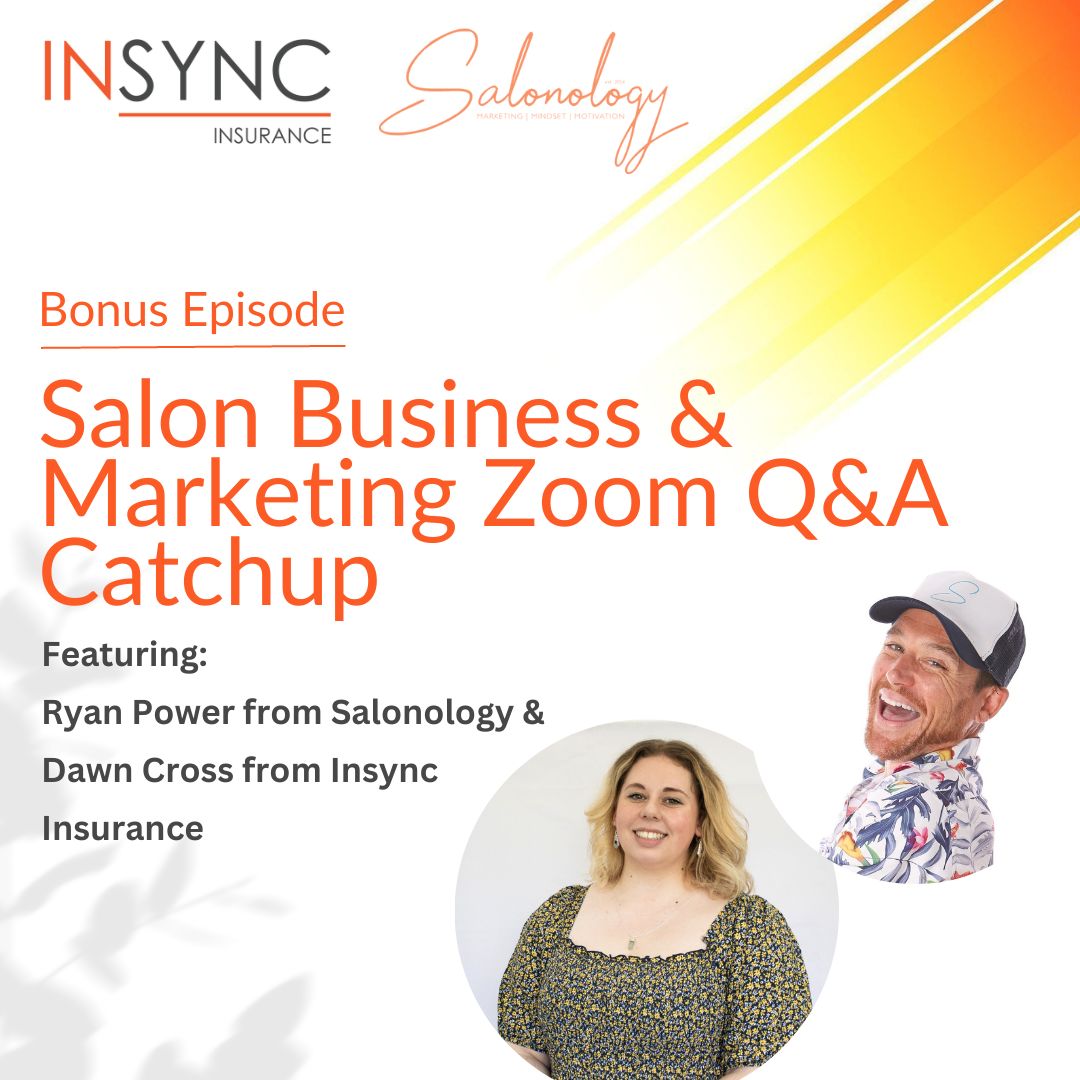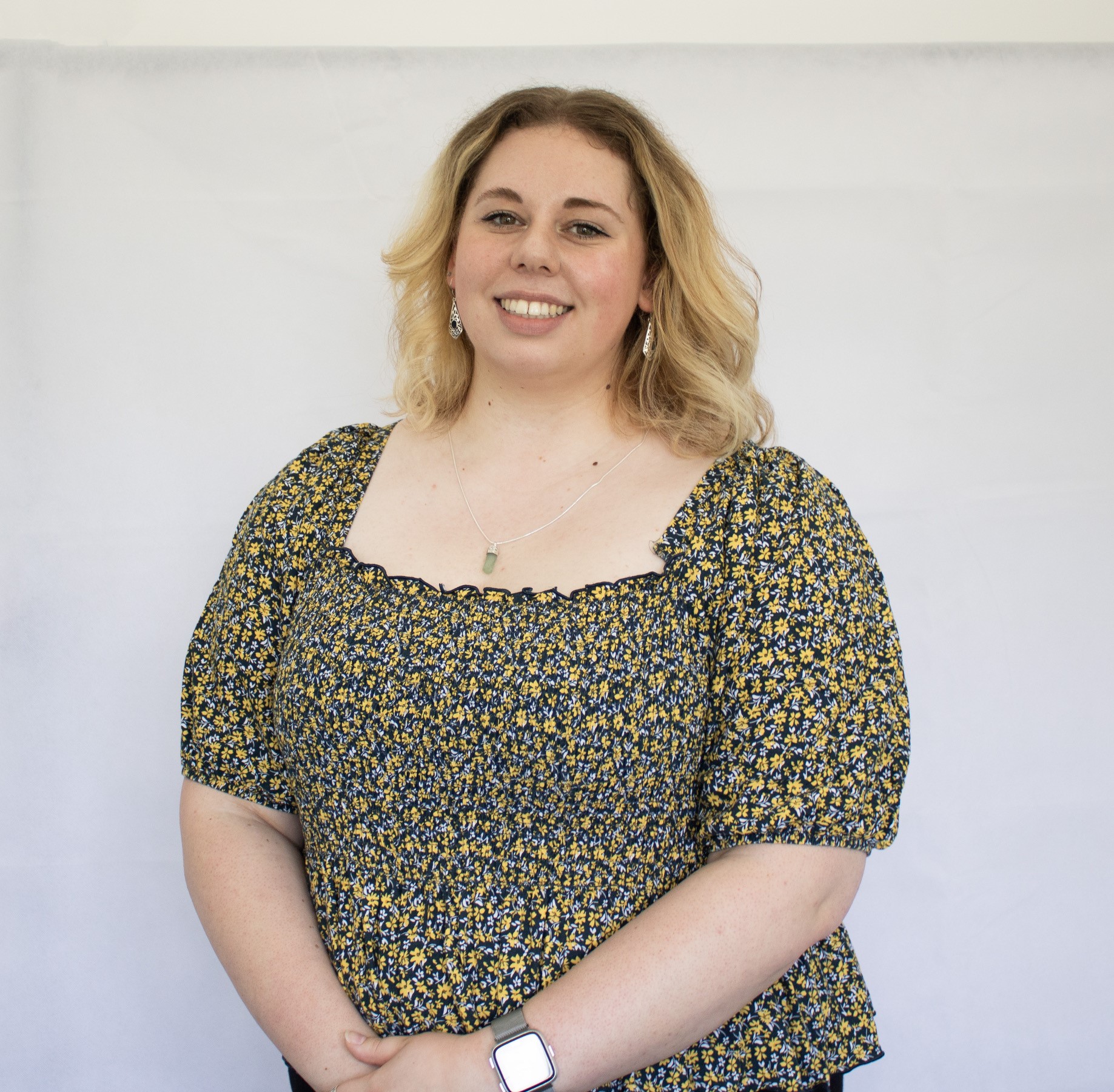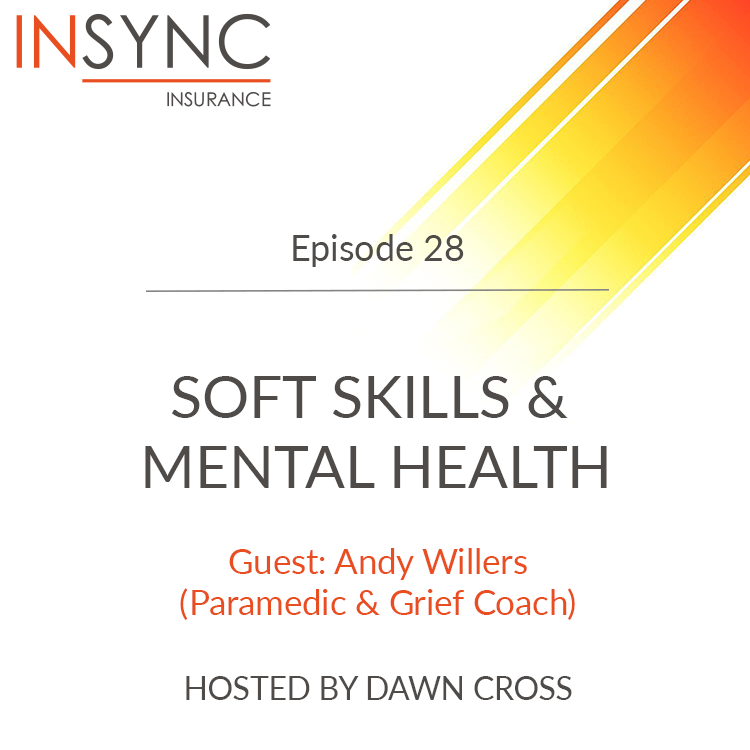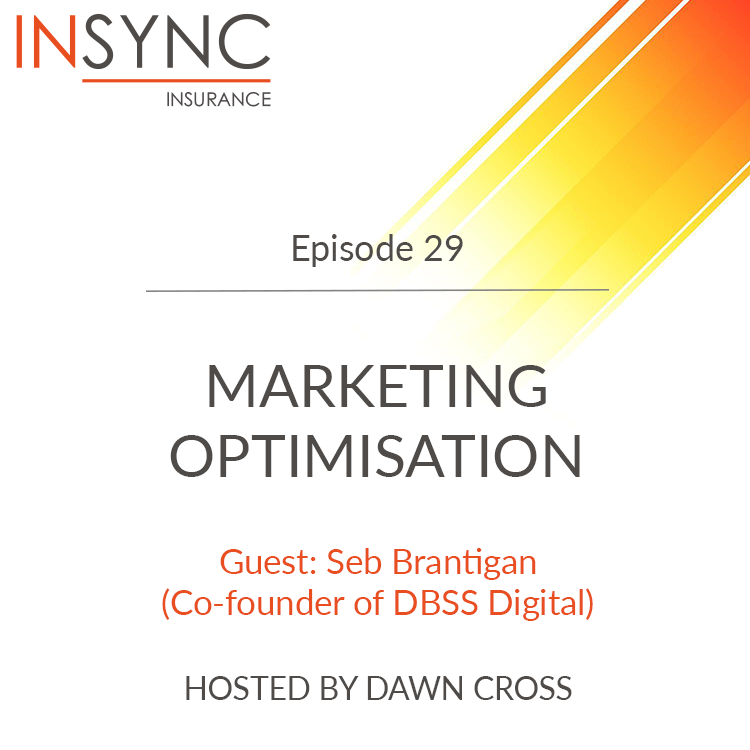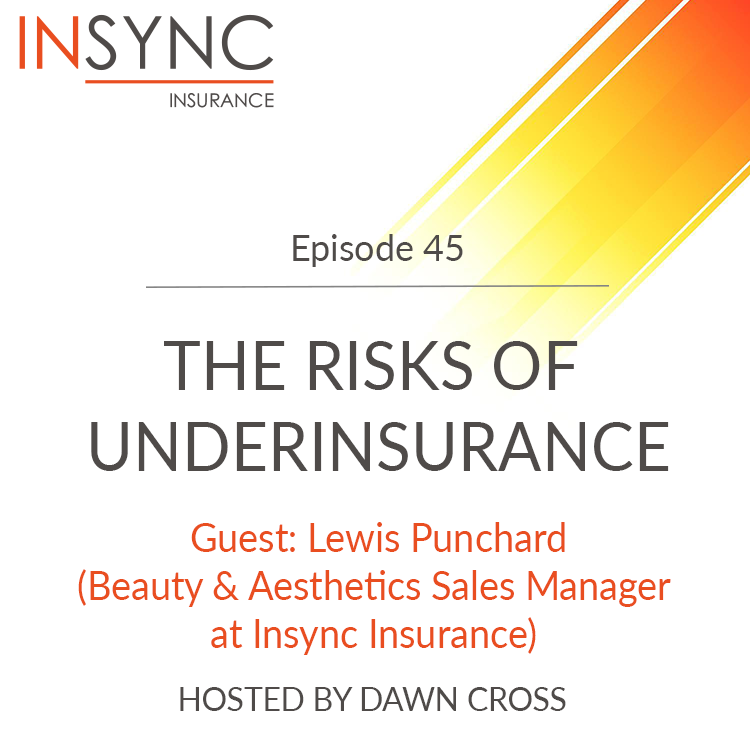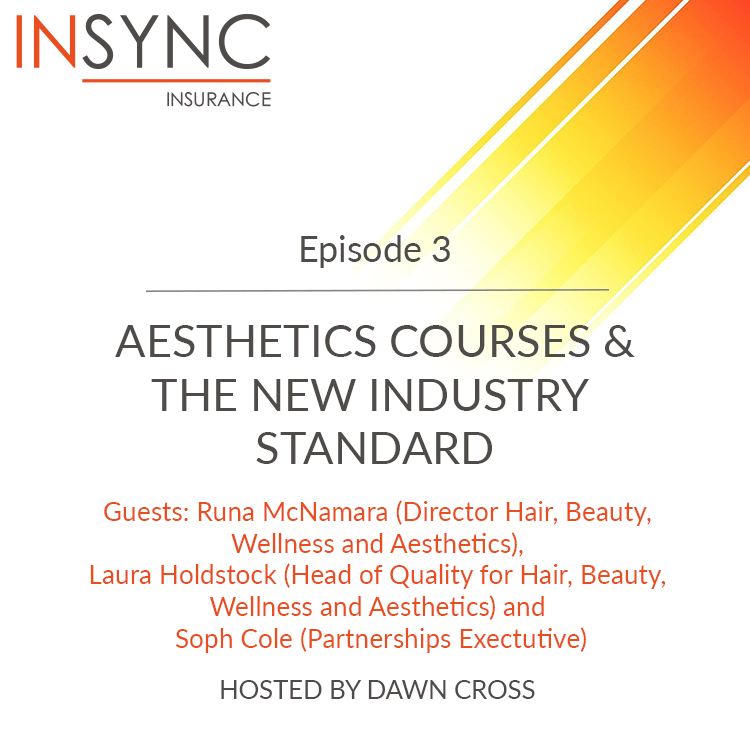Episode Transcript
[00:00:00] Speaker A: Going to press record then.
Well, thank you so much for coming on to speak with me this evening.
[00:00:08] Speaker B: Thank you for having me. Yeah, great to be with you.
[00:00:11] Speaker A: Brilliant. So, obviously not everyone will know who you are from starting off in this session. So if we start off, could you tell us a bit more about your background in business and marketing and what you do at salonology?
[00:00:23] Speaker B: Yeah, sure. So, hi, everyone. My name's Ryan Power and with my wife Holly, we co founded the salon coaching brand Salonology nine years ago. So we've been doing this for nine years now, helping other salon owners.
And that all came about because we were salon owners ourselves. So we owned a day spa and a salon here in sunny Bournemouth and we owned that for over a decade. And what we realized after maybe four or five years of doing that, we realized that there were certain things that we were doing that were quite different to what other people were doing, what other businesses around us were doing. And we realized that what we had and the sort of systemization within our business could be useful to others.
And we started putting content out there. And now, nine years later, we coach more than 400 other salon owners, helping them mostly with business growth and marketing and systems in their business, that kind of thing. So I'm not about to teach anyone how to deliver a better facial or anything like you don't want me going anywhere near you in that respect. But if it's customers that you need or more money in your business or more freedom within your business, I'm getting off that hamster wheel then. They are the sort of things that we help people with.
[00:01:52] Speaker A: Yeah, that's brilliant as well, because obviously, if you qualify as beautician, you work way up and you want to open your own business, but you know everything about the beauty. But see, that on the business side, you may not know as much. Obviously, that's where you guys come in and absolutely help boost it to the next level 100%.
[00:02:11] Speaker B: And do you know what? It's actually really interesting that you say that, dawn, but what we find are so many of our clients, they own a salon now, but they never set out to own one. They just somehow have got one. Somewhere along the line, either an opportunity has arisen or they've bought out an old boss or they worked for a boss they didn't like and thought they could do a better job of it themselves. But they never, from five years on, thought, one day, I want to be a business owner. So what we found is that there's often a drop off or a gap, shall we say, in some of those skills. So they're super qualified and skilled when it comes to the actual physical doing of the job, as it were. That's definitely not what we help people with but it's the how do I put those business skills into place, which are so important nowadays, more important than ever. And it's that skills gap that we really help people with. And bizarrely, we did it completely back to front how most people would in that when Holly set up and launched our day Spartan salon, between us, we had a total of zero industry experience. So Holly just thought it would be a good idea open a salon. And she'd never worked in a salon. She wasn't beauty qualified. We had to employ someone from day one because we certainly couldn't deliver any of the treatments, and we had to employ someone who was qualified and insured to do so. She must have the right insurance, right?
And so we were completely backward. But what that allowed us to do was lean on our experience from other industries and from other businesses that we'd owned and apply some of those skills to the salon world. And would you believe it, it's like, well, actually, salon businesses operate pretty much the same way under the bonnet as all sorts of other business is business. Really? Yes, you're having slightly different conversations with people on the salon floor level, but ultimately, a business is a business, and it's there to create a profit for its owners or for its shareholders and to provide a service for its clients. And ultimately that's true across the board. So we figured that we could put some of what we'd learned in other industries into place in salons, and yes, we could, and yes, it worked. But it also turned out that that was, as I mentioned, different to how a lot of other people were doing it, which again, in turn meant that we were able to stand out from our competition and that's what we hope for our clients now as well.
[00:04:53] Speaker A: Sounds absolutely amazing. What kind of businesses then did you do previously? If you're willing to talk about it?
[00:05:01] Speaker B: Yeah, no, I'm willing yeah, I'm willing to talk about it. Yeah. So we got a wide variety, actually. So immediately before the sound, holly worked in recruitment, which again, is completely unrelated. And I had a financial services background, so I worked in financial services for ten or 15 years, and then I had a jewelry business, which I owned for about eight years. So all completely different. They couldn't all be more different if you tried.
But it turns out that, yeah, under the hood, guess what? Most the principles of making a profit are still the same. You're just selling something different.
And as I say, I can completely understand why there is that skills deficit in some areas. And that's to be expected because most salon owners never went to business school, don't have business degrees, probably didn't even like business necessarily that much when they were studying. But now it's like, oh, actually, even just a basic appreciation and understanding of some of those skills that are required at the most basic levels, which isn't not difficult. If you can qualify in all sorts of other things or learn to drive a car, then you can learn these business skills. They're no more complicated.
But when you put them into place, even just a small application can give you a massive leap ahead of your competition because a lot of the competition around you, they're probably in exactly the same situation. They're probably also trying to figure it all out themselves. There's every chance that some of them are just completely winging it from day to day as lots of it guess what everyone does when they start, right, that's okay. But for longevity and for your own sanity, then it does kind of pay to have some systems in place, I would say.
[00:06:57] Speaker A: Oh, definitely. So moving on to my next question. Obviously we're not shaming anybody here. Obviously you've had a wealth of experience to a range of salon owners with each and every little thing they needed. What's a common mistake you see that maybe that salon owners do in their businesses?
[00:07:15] Speaker B: Yeah, great question. And there are common themes that we see over and over and over again.
Okay, so there's quite a few, I'll run through a few of them to try and give as much value for people watching as possible.
I think one of the first problems, specifically within the marketing realm, as it were, which is one of the things that we talk about a lot, is I think too heavy a reliance on social media. And not only a heavy reliance on social media, but a high reliance on organic social media. I e. Free non advertising social media. And what social media has taught people over the last 15 years, or certainly for the ten years prior to the last five, was that you can build a business on social media and you don't have to pay to get in front of people, and you can reach a whole load of people and pay nothing to do. So. And I feel it's kind of spoiled people. And now social media is like, well actually, if you want to play that game, you're going to have to pay a little bit now most of the time, especially if you want to reach people outside of your existing community. And as a result that's kind of meant people, I think, to take that a little bit for granted. And I think that if you look at free social media, then 15 years ago if you'd have wanted to advertise guys in a newspaper or a local magazine, you would have had to pay. If you wanted to put flyers through people's doors, you would have had to pay. If you wanted to do a collaboration to appear in someone else's business, you'd have had to pay. And then social media came along and everyone went, oh, it's great, it's free. And you can reach tens of thousands of people. And you could at the start it was really, really simple. And then over, as time has gone on, it's got harder and harder. And as they've monetized their own platforms, which guess what, they're a business with shareholders too, so they're going to want to make some money. They just looked at it, that they would make it, they would give a lot of value up front, I suppose.
Now that, as I say, makes people, I think too many people think, well, if I put a post on Facebook I'm going to get 50 bookings, that's going to be seen by hundreds of people and loads of people will book in with me. And the reality is that you're doing well if like 2% of people see your posts. And guess what? It's the same two to 5% every time. So if you've got 500 people following your page, you might only get 30, 40, 5100 people see your post. And that isn't very many people, especially if it's the same one. So people get frustrated and they're like, I'm putting stuff out and I saw this video and someone said I have to do reels, so I've done them and I'm supposed to do these lip syncs. So I've done that and still no one's seeing it. And why are my diary still empty? And now I'm spending 6 hours a week being a videographer and a video editor. And I think sometimes I think we need to take an approach that is a little bit different and I think we need to have a look more. And this is the second mistake that I often see, is that people just they don't have a system in place. There's no systemization of how do I attract people into my world in the first place, which again has changed because years ago, as long as you had a good high street location you were going to be fine. But now a, a lot of salons aren't on the high street. And secondly, there's a reason for that because the high streets not what they used to be.
So because of that, the whole landscape has changed. So I think that every salon owner, every business owner really needs to have some sort of systemization in place for how do I get people into my world in the first place, how do I let people know who I am? How do I let people know that I can help them? And then secondly, how do I then after giving them an amazing experience, because I'm going to assume that everyone watching is fantastic at what they do in terms of the services that they deliver. But after that, how can then I make sure that that client becomes a fantastic client, a superfan, an ambassador of my brand, rather than someone that comes once and then I never see them again. And the things that make that happen are not difficult. They're not difficult to do. There's just some very specific things that you need to do, which most people do not do, and therefore people fall through the cracks. And again, that is true with lots of local business and I understand why it happens for lots of people. They're going to be thinking. Well, that's all good and well for you saying that, Ryan, but I have to do this job. Especially if it's they're the only person and you've got to wear 50 hats and you're juggling. All these different balls and trying to spin all the plates, and it's like, I don't have time to do this marketing bit that you're talking about as well. And I do understand that. I do understand that. But I would question whether or not people prioritize marketing high enough in that list of jobs that they have. This is how I like to look at it, dawn, right?
As a business, for a business to survive, we need money, right? I know it's a bit crass talking about it and it's not very British, but you do need it in your business or you're not going to be in business for much longer, right? Any business that doesn't make a profit is a charity, and whilst that is very noble, it's not going to feed your kids, right? So therefore, you need to make sure that you have got cash coming into your business. And the way that you get that cash into your business is it comes via your clients. And the way that you get clients is via marketing. So marketing equals the cash in your business. Now, for me, and I mean, call me a capitalist pig, but for me, it's like I'm going to prioritize that pretty high because I want some money in my business, because I've got a team to pay and I've got a dog to feed and I've got a mortgage to pay and all these things, right? And you read about how everything is getting more expensive and all these issues within the country. Well, in that case, that means it's even more important than I'm getting paid.
So ultimately, I would always want to prioritize that marketing. And the good news about this for anyone watching, is that your competition probably aren't on top of this either. They're probably doing a terrible job of it. They're probably, as I mentioned earlier, winging it anyway. So even just a few tweaks and just doing a little bit, a few steps in the right direction, just some baby steps can really make you stand out. When we still had our baseball, which we've since sold, we didn't think we were doing at the time, anything completely out of the ordinary. But only now, looking back and in the position I'm in now, seeing so many other salons, it's like, oh, actually, we were doing things completely different, and they seemed like they were normal things to us at the time. But the reality was that most other businesses, they weren't doing anything. In many instances they weren't doing anything. And again, because in days gone by, if you had a good location, you didn't have to do very much because you would get people coming in and the word of mouth would spread and you'd get that hustle and bustle on the high street could mean you would be busy for a lot of the times that you were open. But the landscape doesn't look like that anymore and there's more competition within our industry, there are very low barriers to entry, particularly on the less expensive services you can get up and running. I mean, most people have had the experience of another business literally just popping up seemingly out of thin air overnight. We had one very recently near to where we live, and it was literally within one day it was an empty unit, and two days later, it was an all shiny, all singing, all dancing like nail bar that had looked like they must have worked through the clock, through the night, like one of these DIY SOS programs or something where sent people in, because it literally just appeared overnight. And I know a lot of people have experienced that. So because of that and because the barriers went through are so low, it means that we've got to do more to hold on to our clients. So part of that is providing an amazing service, it's wowing them and it is also understanding that our industry is an experience for our clients. It's not just transactional. And we feel particularly over the last few years with everything that's happened in the world now, a lot of people really value their salon time even more than they did before.
We saw from 2020 how important mental health is to everyone and how important our industry fits into that community role. And for a lot of people, their trip to the salon every six weeks or however regularly they go, that is a sacred space for them and their phone is off and the kids can't get them and the other half can't get hold of them. And that is their little bit of space time for them. And we should be respecting it and treating it as that and really crafting it as an experience and not just someone popping in for a massage or to get their nails done or whatever it might be. So I think that as a result of a few of those things, yeah, I think that outlook has changed.
And I also feel in terms of one of the other mistakes I think that I see a lot of people make is they don't charge enough. That is a real biggie people not charging enough for what they offer. And I think part of that comes from a lack of understanding of what the numbers really mean in terms of the money coming into my business, it does not go straight into my pocket that's the revenue of the business. You've got to pay all of your costs out of that. You've got to pay your insurance, you got to pay your rates, you got to pay for everything, or your broadband, the works, right? And the way I look at it is every service or treatment that you deliver has to contribute to a little slice of some of those costs of running your business. And I think a lot of people don't really understand the correlation between the costs of their business and the price that they should be charging. And as a result, they probably think they're making more profit than they really are, which is obviously ignorance can be bliss, but it can also be very dangerous as well. So I feel that a better understanding and grasp of those numbers would make people increase their prices a lot more. And when you put your prices up, you can do lots of wonderful things dawn as well as actually paying yourself a proper wage, which is a good place to start because again, we're renowned as an industry for not doing a very good job of that. But also it means you can give your clients a much better experience.
You can add all those little extras, all of those little wow factors that we all enjoy so much when we go and visit other businesses. We can do that for our clients. And it's often those things that people remember that they talk about with their friends that might be the difference between a four and a five star review. That might be the difference between them coming back again or not and rather putting the focus on those things. Sadly, what a lot of people do is they put too much focus on the amount that someone is paying and their own belief, which is often a false one, around how much people would pay for a service or a treatment. And I think, again, a lot of people confuse what they would pay with what a client would pay. And let me give you an example. In our salon we used to do high food treatments, high intensity frequency ultrasound. It was like a non surgical facelift, right? So does that for you? Yeah, it's the closest you can get to a facelift without going under the knife. And we used to charge over 1000 pounds for that treatment. Okay, now I wouldn't have that treatment, but that doesn't mean that I'm not going to sell it for other people and it certainly doesn't mean that I would say, well, I'd only pay 200 for that, so that's what I'm going to price at. It's got nothing to do with me. It's not about me. It's about our clients.
And our clients, typically when they come to us, it's because a lot of the time it's because someone has some form of pain. Not necessarily a physical pain, by the way, but they're in pain of some description that they want. And it might be, as is, an emotional pain like we spoke about earlier, it might be their sanctuary, their one two hour slot that they get to really, truly unwind. And you shouldn't underestimate what people will pay for that. You don't know what they've got going on elsewhere in their lives and it's none of our business what someone else wants to pay for something. And I think some people think, I wouldn't pay 50 pound for that, so I can't charge that and that's dangerous because someone might want to pay that.
But again, some of that is a change of mindset, bit of a shift, and some of that comes down to just putting slightly different principles and practices in place within your business and they're not necessarily difficult things to put in place either. Just at the moment, a lot of them don't exist at all.
[00:22:06] Speaker A: No, definitely, I agree. And I think moving back a little bit to when you were talking about creating that space and getting them to almost be an advocate for your business, I think that's such a key thing that people overlook and creating a community feel, because then obviously they want to come back, they feel welcome. They're going to recommend to the friends, like, I went to the brilliant hairdresser. She's vegan, it's fabulous. And look at my hair. She's obviously brilliant at what she does and everything else. Creating that is like some of the most key things that I learned as a marketer as well, obviously. And I know that you know as well, and I think it's something that I would urge anyone listening to definitely have a look into. Just there's a load of free marketing courses out there that can sort of tell you a bit more about that specific thing. Obviously, if they're really struggling, obviously you'll be the best person to go to, really, because you know exactly what to do.
[00:23:02] Speaker B: Well, it's interesting what you say about referrals as well. That's a point worth touching on because some people really struggle. But the thing is, as humans, we want to give recommendations, we want to give referrals when we have a good experience.
For example, if you and I were just casually chatting at work tomorrow and let's say for argument's sake, I've gone to the cinema tonight and I'd seen a really good film, I would take great delight in telling you how good that film was. No financial benefit to me, by the way. So it's not like you got to pay people to do this. People will willingly do it if you give them a good experience.
So, again, for the film example, people like, yeah, you've got to go and see this film, dawn. It was absolutely brilliant and oh, I won't ruin it for you, but there's this great twist or whatever it might be, and then afterwards I feel good about sharing that with you. And if you then go and see it and you have a good time. I feel good about it. Nothing to do with me, nothing to do with me at all. And I'm not a film critic either. But the point is we want to give those recommendations. So people want to do that. And you don't need to pay people necessarily.
You don't need to overtly incentivize them so that it feels forced or inauthentic. All you got to do is wow them and remind them that if they happen to have a conversation with some of their friends or someone asks how come their skin looks so glowing, then maybe just share with them how that came about.
And again, sometimes I feel that that's just having those conversations with clients. The thing is, dawn, about clients is that the clients didn't get the memo. They didn't get the memo that they have to buy all of our product upsells. They didn't get the memo that they should be inviting their friends. They didn't get the memo that they should be trying other services, they should be coming back twice as often. They didn't get any of those memos. So we have to train them and we have to have those conversations with them to encourage people to take the actions that we want them to take. And I think some people think I don't want to do that. It's sleazy and it's salesy doing that and it's none of those things. It's just having a conversation with people and sowing the seed with them on how you would like them to behave, much in the same way that if we don't tell clients how we want them to behave, then they'll behave however they like. And that often involves leaving bad reviews, turning up late, not turning up at all, canceling at the last minute, pretending that your grand has died when you look at their client notes and their grands died three times in the last 18 months, all people hear the same things. And that's because we've trained those clients to behave in that way. For example, if you don't charge a cancellation fee, you are training your clients that it's okay to just ditch you at the last minute. If a client messages you at 11:00 at night and you reply, you are training them that it's okay to message you at 11:00 and you will reply. And I don't think people always give that enough thought and make that why do they keep messaging me at 11:00, the first one, so you're telling them it's okay if you had never replied to that and the world wasn't going to end, if you didn't reply until the next day, nothing was going to happen.
So there's some of these little small things and again, I appreciate it's a lot for people to try and remember sometimes and because it's a lot to remember. That is why you need systems in place in your business. So that if you the business owner are there or aren't there? If you've got a team that are delivering your promises on your behalf, they are following a system so that they can't possibly get it wrong. And a lot of people say, well, I find it difficult to train my staff to do that and to do what I say. But I like to look at it this way. If McDonald's can train their staff to act in exactly the same way for every single client, they offer an upsell on every single order. If you order the burger, they're going to offer you the meal, whether or not, because that's their job, it's part of the job. You have to say these words, and there's no reason why we can't do that if we take the time to train our staff and to train ourselves as well, properly, to actually have those conversations which might feel awkward the first time you have them. Asking for a rebook, asking for the sale, asking for people to try more expensive treatments, is that awkward? Might be awkward the first time and it might be awkward in your head, but it isn't for your client. It's not awkward for them. If I come to you and I'm booked in for a treatment and you've got something else on your menu that would help me much, much more and you're not telling me about it, then you're doing me a disservice. You're not helping me, you're making things worse for me. And again, I think sometimes we just need to get out of our own way and think, how could I help that client at a higher level? And if you've got a twelve week program that costs ten times the price of what they've come in for, you at least need to tell them about it, because if they're looking to solve their problem and you've got something there that's going to help them. So sometimes I think we just need to get out of our own way.
[00:28:59] Speaker A: I think sometimes no, definitely, I definitely agree. We are now unfortunately, coming to the end of our Q and A, so I think there's only so many minutes Zoom gives us, unfortunately.
So I guess my last question for you. You said you've got a new book out. Could you describe to me under 100 words about the book, or is that going to be too little words?
[00:29:22] Speaker B: I can certainly try and do that in about 100 seconds, which I think is what we've got left.
Yeah. So this is my second book.
I've written two books, both about salon marketing. The first one has got more five star reviews than any other salon marketing book on Amazon, which is something I'm very proud about. But the new one, which literally only just come out, it's called The Successful Salon Marketing System, and it is all about putting a system in place for your business. So if you find marketing difficult and you want a systemizable solution. For your business, which helps you attract clients and then also upsells the more expensive solutions as you go through and helps them become ambassadors for your business. Then this book shows you, step by step, how to do it. It's exactly what we did in our business and it's what we teach to those who work with us as well. And people can get that directly from me. It's not on Amazon yet and the website is salon Marketing Book. Or just reach out to me on social media and I will send you the link.
[00:30:33] Speaker A: That's brilliant. Well, thank you so much for coming on today. It's been really great to talk to you and very insightful.
[00:30:38] Speaker B: Likewise. Thank you for having me. Yeah, I enjoyed it.
